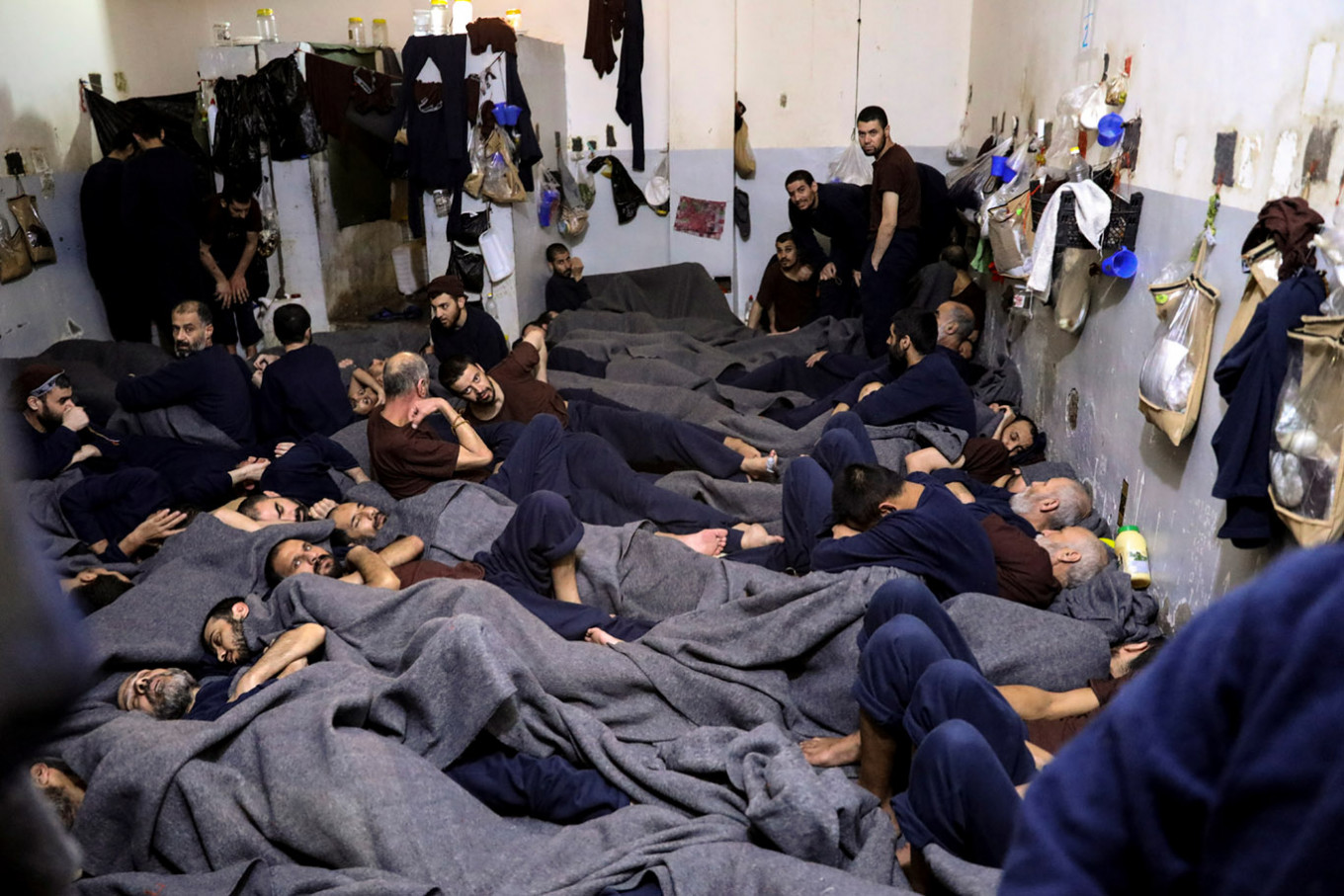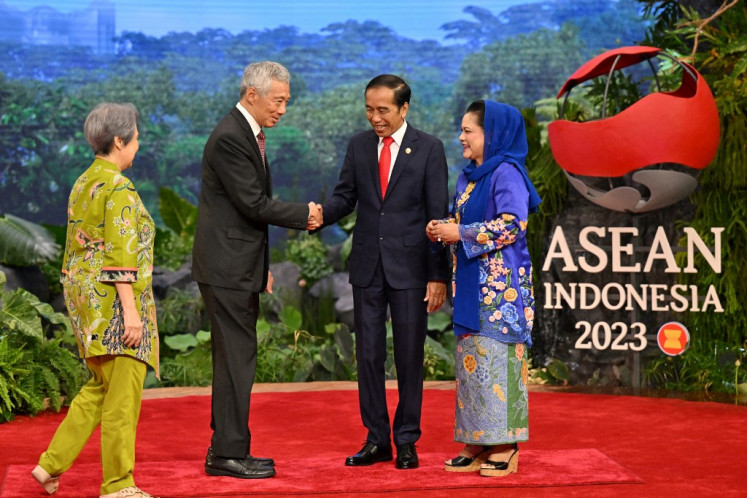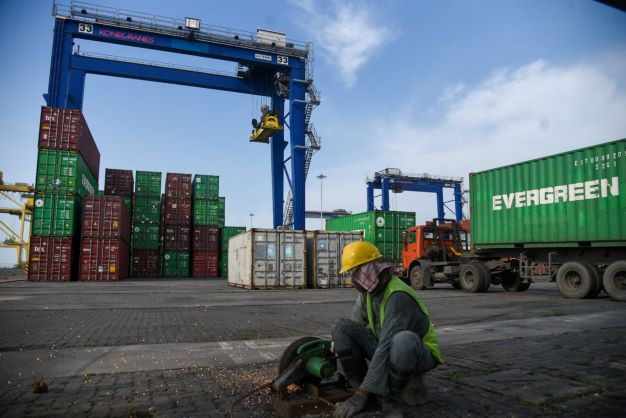US missed bigger picture in veto against terrorist threat resolution
The greatest proportion of them came from Southeast Asia (up to 33 percent of those who traveled to, or were born within, the IS) and Western Europe (28 to 29 percent).
Change Size

T
he last day of presidency of the United Nations Security Council (UNSC) in 2020 left a grim memory for Indonesia, as well as like-minded countries, as the United States vetoed the draft resolution on prosecution, rehabilitation and reintegration (PRR) of terrorists. Gaining support from 14 members, an opportunity for a comprehensive approach to tackle terrorism and violent extremism has been missed by the veto.
The aim of the resolution was to address the prosecution, rehabilitation and reintegration of terrorists, including foreign terrorist fighters (FTFs) and their accompanying family members. The US vetoed it because it failed to include a provision regarding the repatriation of FTFs to their countries of origin or nationality.
The veto could have dire repercussions for the relationships among current UNSC members and their efforts to address the terrorism threat that has been plaguing international affairs.
The US veto on the Indonesia-led resolution neglected the fact that terrorism and violent extremism are not limited to the repatriation of FTFs and their family members, but also to myriad aspects related to whole prosecution, rehabilitation and reintegration (PRR) strategies. The whole PRR strategy, as mentioned in the draft resolution, suggested comprehensive efforts to prevent and counter terrorism, including on how they are being rehabilitated and reintegrated into society. The resolution provided a strong prosecution aspect and prescribed clear and practical rehabilitation and reintegration elements to develop long-term methods to counter terrorism and violent extremism.
The draft was not only aimed at FTFs who fought on foreign soil, hence it would broaden the scope of the repatriation issue.
This draft also stressed the importance of “a whole government approach” by recognizing the roles of families and civil society organizations, religious leaders and women’s full participation and leadership. In addition to that, this document covered the overall counterterrorism efforts such as addressing root causes of terrorism, encouraging close collaboration, capacity building and sharing experience.
In a nutshell, the US overlooked the importance of the whole PRR strategies, the roles of various actors and the overall counterterrorism efforts.
Some countries are struggling to provide legal mechanisms and capacity building for the repatriation. As the draft encouraged international cooperation on the legal prosecution aspect, it would inevitably help each country develop its capabilities to address the repatriation problem on a case-by-case basis.
Many Southeast Asian and European countries are dealing with an overwhelming number FTFs and their families currently detained by the Syrian Democratic Force (SDF). Based on data from a study by Joana Cook and Gina Vale in 2019, the global estimates of all foreign persons between 2013 and June 2019 who joined the Islamic State (IS) territory range from 44,279 to 52,808, with women numbering 6,797 to 6,902 and minors 6,173 to 6,577.
The greatest proportion of them came from Southeast Asia (up to 33 percent of those who traveled to, or were born within, the IS) and Western Europe (28 to 29 percent). Since the defeat of IS in late 2019, about 12,000 foreign women and children have been living at the refugee camps and 1,000 FTFs detained at SDF prisons. The US had only repatriated 23 of its citizens as of December 2019.
This is where the US lost sight of the bigger picture: what about the thousands of FTFs and their families from other countries? Repatriation on this scale requires a massive amount of funds and mechanisms that Southeast Asian and Western European countries have to cover. Those efforts should ensure that the PRR strategies mentioned in the draft resolution have been put in place before the process of repatriation begins.
The dynamics of the relationship between UNSC members also influenced the US’ hostility toward the draft resolution. Earlier this month, the UNSC failed to adopt a draft resolution on the extension of an Iran arms embargo initiated by the US. Germany, France and Britain, which were expected to back US on the resolution, abstained, while China and Russia rejected the draft.
From an international relations point of view, the US decision to veto the Indonesia-led resolution that was supported by all UNSC members, including Germany, France, Britain, China and Russia, could be seen as an attempt to retaliate against its allies while nullifying the votes of Russia and China. This ticks the box of realpolitik, or great powers rivalry in global politics.
Though unsurprising, it is unfortunate that the UNSC could not seize the opportunity to look beyond muscle flexing to cooperate on a core issue of global security. For Germany, France and Britain, voting in favor of the PRR resolution will help them reduce the risks of public backlash and threat of terrorist acts on European soil. For the US, opposing the PRR resolution showcased its superiority and an effort to garner popular support for Trump in the upcoming election in November.
Pursuing national interests and great power rivalries in such a powerful security governance agency as the UNSC is inevitable. However, the ongoing problem of FTFs has long been unaddressed in a concerted and comprehensive manner. Clear guidance for countries to develop international collaboration, risk and assessment tools, standard methodology and oversight mechanisms as mentioned in the draft should have been one significant initial step to protect each country’s national interest — preventing potential security threats posed by the returning FTFs and their families.
It is such a shame that one vote has created a missed opportunity for the world in resolving the crucial problem.
***
Nuri Widiastuti Veronika is a PhD candidate at Monash University in Melbourne, Australia and Pribadi Sutiono is deputy assistant for Asia Pacific and Africa Coordination at the Office of the Coordinating Minister for Political, Legal and Security Affairs. The opinions expressed are their own.









